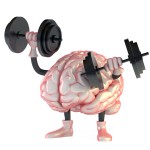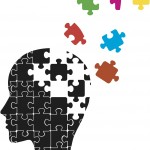Psychosocial therapy effective in reducing self-harm, suicide and all-cause death

Elly O’Brien summarises a large Danish cohort study, which investigates the short-term and long-term effects of psychosocial therapy for people after deliberate self-harm.
[read the full story...]Engaging inpatients with mental health rehabilitation activities

Elly O’Brien reports on a recent RCT of a staff training intervention for inpatients in mental health rehabilitation, which is designed to increase patients’ engagement in activities.
[read the full story...]Folic acid for depression: RCT finds no effect on reducing incidence of depression or bipolar

Elly O’Brien summarises a recent RCT of folic acid for depression, which explores whether mood disorders can be prevented in young people at familial risk. The trial finds no evidence that folic acid supplementation reduces the incidence of mood disorders compared to those taking placebo.
[read the full story...]Cyberbullying and mental health in young people

Elly O’Brien summarises a recent US survey of adolescents, which investigates the relationship between cyberbullying, mental health and substance use problems, and the moderating role of family dinners.
[read the full story...]Targeted mental health support can improve borderline-clinical behavioural problems in children

The statistic that one in four adults in Britain will experience a mental health problem in any given year is well known (if still debated), but a recent report by the Children and Young People’s Mental Health Coalition revealed a lack of such statistics for children. The report also highlighted that Office for National Statistics [read the full story…]
A statistically significant, but small, increased relative risk of learning disabilities in children born via IVF

In-vitro fertilisation (IVF) is used to help people who experience difficulties in conceiving (see NICE’s guideline for information eligibility). It involves fertilising an egg with sperm in the laboratory, before reimplanting the fertilised egg into the woman’s womb to develop as normal. In cases of male infertility, the sperm can be injected directly in to [read the full story…]
#MindfulnessMonday – Mindfulness proves effective in depression and anxiety, but is not superior to traditional CBT

Last week, Kirsten Lawson blogged about mindfulness-based stress reduction as a treatment for breast cancer. We have featured a number of blogs on mindfulness in the last couple of years, including a piece about the use of Mindfulness-based cognitive therapy (MBCT). MBCT is recommended by NICE to prevent relapse in people who have already experienced three [read the full story…]
Atypical antipsychotics can lead to weight gain in children and adolescents, but more evidence needed about metabolic side effects

Atypical (second-generation) antipsychotics are used to treat a variety of psychiatric conditions. Although they have fewer side effects than first-generation antipsychotics, weight gain and other metabolic problems (such as high blood pressure and diabetes) remain common side effects of taking atypical antipsychotic medication (Mind, 2012). The Mental Elf has previously blogged about a Canadian report [read the full story…]
Intensive cognitive training may help to prevent cognitive decline

Cognitive decline describes increasing problems with memory, comprehension, language and mental agility. Mild cognitive impairment means that a person has cognitive decline beyond that which might be expected for their age, but generally do not experience problems with everyday living (Alzheimer’s Society, 2012). Dementia has similar symptoms, but these are more severe and people with [read the full story…]
Short-term recovery from mild cognitive impairment is possible, but an increased risk of further cognitive decline remains

The symptoms of mild cognitive impairment (MCI) include problems with cognitive functioning such as day-to-day memory. In some individuals it is the first sign of dementia, whereas in others it may be due to resolvable factors such as being the side-effect of medication (Alzheimer’s Society, 2012). At present it is unclear how many people with [read the full story…]
